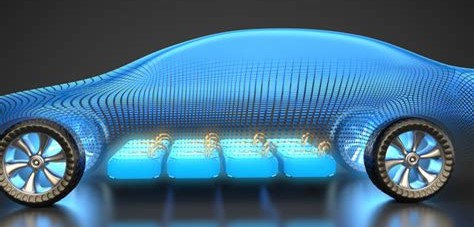![]() Return to all articles
Return to all articles

- By: Jeffrey Barghout
- /
- 3 minute read
- /
- April 2023
Accelerating Climate Action: Biden's Bold Moves in Emissions and Electric Vehicle Infrastructure
The Biden administration is making significant strides in addressing climate change by proposing new vehicle pollution standards and allocating substantial investments in electric vehicle infrastructure. These initiatives form part of a broader plan to decrease greenhouse gas emissions and transition the US towards a clean energy economy.
The Environmental Protection Agency (EPA) and the Department of Transportation (DOT) are collaborating to establish new emissions standards for vehicles, with the aim of finalizing these regulations by July 2023. The standards will apply to both light-duty and heavy-duty vehicles, encompassing passenger cars, trucks, and buses. EPA Administrator Michael Regan emphasized the importance of setting "ambitious, achievable" standards that "spur innovation in the marketplace."
The proposed standards are anticipated to be more stringent than those established by the Trump administration, which had previously rolled back Obama-era fuel efficiency regulations. In 2020, the Trump administration set a standard of 1.5% annual improvement in fuel efficiency for vehicles, a considerable decrease from the 5% annual improvement mandated under the Obama-era rules. The Biden administration's new standards are expected to align more closely with the original Obama-era requirements, which aimed to nearly double fuel efficiency by 2025.
In conjunction with the new pollution standards, the Biden administration's $2 trillion infrastructure plan includes a $174 billion investment in electric vehicle initiatives. These initiatives entail constructing 500,000 charging stations nationwide, offering incentives for electric vehicle purchases, and replacing diesel-powered buses with electric alternatives. This investment is predicted to create jobs, reduce pollution, and enhance the US's competitiveness in the global electric vehicle market.
The United Auto Workers (UAW) union, which represents auto industry workers, also supports the push for electric vehicles. UAW President Rory Gamble declared that the union is "all in on electric vehicles" and expressed confidence that the transition to electric vehicles will generate new jobs and opportunities for workers.
However, the new pollution standards and electric vehicle investments have faced opposition from some lawmakers and industry groups. Critics argue that the standards are overly aggressive and could result in job losses within the auto industry. Additionally, some detractors contend that the focus on electric vehicles may not be the most effective method of reducing emissions, given that the electricity used to charge these vehicles often originates from fossil fuel sources.
Despite these concerns, the Biden administration is forging ahead with its plans to tackle climate change and transition the US towards a clean energy economy. The new vehicle pollution standards and investment in electric vehicle infrastructure represent crucial steps in accomplishing these objectives and decreasing the nation's greenhouse gas emissions.
The Biden administration's proposed vehicle pollution standards and investment in electric vehicle infrastructure signify a strong commitment to addressing climate change and transitioning the US to a clean energy economy. With the EPA and DOT working in tandem to establish ambitious and achievable standards, and significant funding allocated for electric vehicle initiatives, the US is taking essential steps towards reducing greenhouse gas emissions and fostering a cleaner, more sustainable future.
About the author:
Jeffrey Barghout is an accomplished Business Strategist with over 25 years of experience in technology evaluation and strategic planning. As the CEO of Robocist, he is dedicated to developing and accelerating the adoption of emerging transportation technologies, including connected, autonomous, and electric vehicles, as well as utilizing artificial intelligence (AI) to quantify the driven environment.
Jeff's extensive background includes serving as an engineer and strategic planner at Chrysler, assessing technologies for NASA, and holding the position of Vice President of Transportation Initiatives at a leading research and consulting firm. He has been a successful serial entrepreneur, launching and growing businesses in various industries.
He participates in numerous advisory groups and serves on the Board of Directors for organizations like E4 Carolinas. With a proven track record of delivering results in both technology and business strategy, Jeff has navigated the complex intersection of technology, market forces, regulation, and stakeholder opinions, perceptions, and needs.
